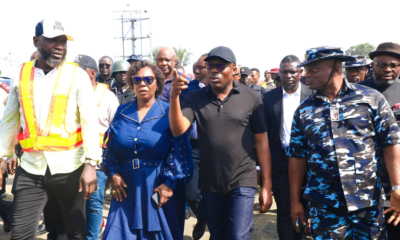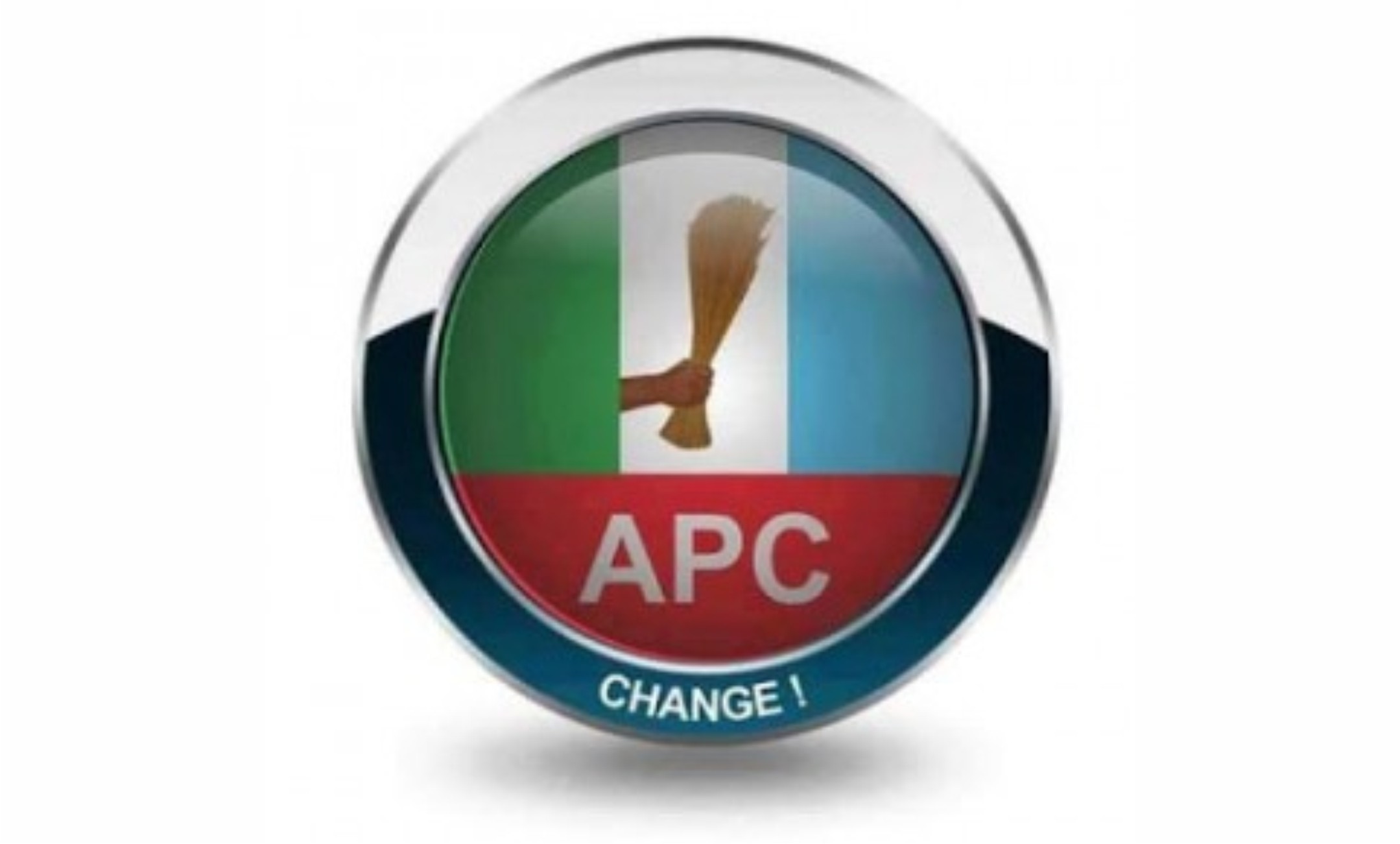Business
Capital Market Key To Economic Growth -Onyema
The Chief Executive Of
ficer, Nigerian Stock Exchange (NSE), Mr Oscar Onyema, on Tuesday, said that the capital market was important for economic development and wealth creation.
Onyema made the declaration at the Market Data Workshop organised by NSE in partnership with the Independent Software Vendors (ISVs) and Market Data Vendors (MDVs) in Lagos.
He said that “in spite of the challenging economic conditions we are experiencing in Nigeria, the capital market still remains one of the main vehicles for economic development and wealth creation.”
He added that the capital market should be used effectively to ensure economic development.
He explained that the NSE Premium Board had returned 11.3 per cent Year-To-Date as at Oct. 17.
According to him, the level of private sector time deposits have declined by 14.4 per cent to N3.8 trillion over the last one year, from September 2015 to August 2016.
He noted that “with an average inflation rate of 12.7 per cent over the last year, the NSE Market Data Workshop, themed “Understanding Market Data for Savvy Investing and Wealth Creation” could not be more apt.”
Onyema said domestic investors and foreign portfolio investors required an elevated level of insight in order to discern between great investments and lame investments, especially during a challenging down cycle.
He added that “when we talk about market data, we refer to the pre and post trade-related data for the financial instruments traded on the NSE.
“NSE market data informs traders, investors, media and others in the market on the quotations, latest price, and historical trends for the equities, fixed-income, and ETF products that were traded on its platform.
“This information is not only used in real time to make instantaneous buy and sell decisions, but the historical market data is used to make price projections, as well as calculate market risk on investment portfolios.”
He stated that the workshop was designed specifically to provide capital market participants with sufficient knowledge about exploiting NSE market data for smart investment decisions..
Maritime
Shippers’ Council Registers 160 Port Operators

The Nigerian Shippers Council (NSC) says it has registered 160 Port stakeholders into its Regulated Port Service Provider and Users platform since the initiative began in 2023.
Executive Secretary, NSC, Mr Pius Akutah, made the disclosure on the sideline of a sensitisation programme by the commission for port operators in Lagos, with the theme, “Regulated Port Service Provider and Users”.
Represented by the Director, Consumer Affairs, Chief Cajetan Agu, Akutah emphasised the significance of the programme for stakeholders.
He said the sensitisation programme was the second edition after its commencement during the last quarter of 2023.
The Secretary said the 160 registered port operators consist of agencies, terminal operators, shipping companies, individual port users as well as service providers.
“We invited the ports stakeholders for enlightening them on the processes for online registration of Regulated Port Service Provider and Users.
“We have demonstrated to them how to register and how to make payment and we were able to present before them the various categories of the registration.
“The rate of payment is also in the registration. The payment of each group depends on the operation. A shipper pays N30,000, terminal operators and shipping companies pay N300,000, truckers also pay N30,000, while some pay N50,000 and N100,000.
“The Council was able to intimate them on the benefits, because port users benefit more as we help to interface on reducing port charges from time to time”, Akutah said.
He said that there was a need to continue to work with port operators to stop delays and eliminate high costs to make the port efficient.
Also speaking, the Deputy Director, Stakeholders, Service, NSC, Mr Celestine Akujobi, said “the sensitisation exercise was important for the council to enable us bring all the port stakeholders together”.
According to him, this is to avoid challenges during the implementation of the council’s responsibilities.
“By the time we introduce sanctions on defaulters, no operators will complain that he or she is not aware of the registration.
“I’m happy with the turnout of this sensitisation. This shows that the operators are well informed of the statutory friction of the council as the port regulator.
“The final implementation will commence as soon as we discover that all the operators have keyed into the portal.
“We are engaging other ports across the country and we’re hopeful that before the last quater of 2024, the council will implement sanctions on defaulting operators”, Akujobi said.
Earlier, Vice Chairman, National Association of Government Approved Freight Forwards (NAGAFF), Dr Ifeanyi Emoh, said port challenges were enormous, adding that they originated from some of the government agencies.
Emoh urged the council to look into regulating other government agencies, so that there could be a window through which they can collect port charges collectively instead of indiscriminately.
By: Chinedu Wosu
Business
Chivita, Hollandia Reward Outstanding Trade Partners At Annual Conference

Chivita| Hollandia (CHI Limited) leading fruit juice and value-added dairy manufacturer in Nigeria has rewarded its long standing distributors at the recently held 2024 Distributor Conference. The event with the theme, “Break Boundaries Exceed Expectations” served as a platform to recognise and reward the exceptional contribution of the distributors and wholesalers who play a critical role in Chivita|Hollandia (CHI Limited) success and business goals for the year.
The Distributor Conference was held in two sessions. While the morning session featured keynote addresses, industry insights and brand immersion experience, the evening session was a cultural display of elegance and funfair that culminated in the award presentation and recognition of the contribution the trade partners made to the company in the 2023 year under review.
A key highlight of the event was the award ceremony which acknowledged outstanding trade partners in various regions across the country. The awards recognized commitment, dedication, and outstanding performance in areas of sales growth, brand promotion, and market expansion.
Eelco Weber, Managing Director, Chivita|Hollandia (CHI Limited), stated that the company’s success story is incomplete without the strong partnerships it has built with trade partners. “Today, we celebrate not only the achievements, but the collaborative spirit that has made our growth possible” he said.
Bola Arotiowa, Chief Commercial Officer, Chivita|Hollandia (CHI Limited), in his statement revealed that, the event which was first of its kind will continue to be an annual meeting to enable the company work more closely with its distributors, share insights and action points, help the trade partners familiarize themselves with the company’s goals and objectives for each year, and serve as a driver for mutual success.
“Our distributors are the backbone of Chivita|Hollandia (CHI Limited). Their relentless efforts in distributing our products, promoting our brands, and expanding our reach across the nation is truly commendable. As the bridge between us and our valued consumers, it is very important to reward their hard work and dedication for being an essential part of the Chivita|Hollandia (CHI Limited) family. Together, we will continue to deliver great products to our conusmers which in turn will deliver value to them”, Mr. Arotiowa added.
Speaking at the conference, HajiyaBilikisuSaida, Chief Executive Officer of Smabirm Nigeria Limited, who won the Outstanding Distributor of the Year in North 1 region, and got a reward of two million Naira worth of Chivita|Hollandia (CHI Limited) products expressed delight at the company’s recognition, and stated that the awards served as a way to inspire distributors to do more and put in more effort, which in turn would help both the distributors and the company to grow.
Other outstanding performance distributors of the year rewarded with a two million Naira worth of Chivita|Hollandia (CHI Limited) stock include, Sunny Chuks Limited for East 1 region, MRS FA & Sons Limited for East 2 region, Hussakas Ventures for North 2 region, Rookee 1388 Ventures for Lagos 1 region, Pik N Pil Ventures for Lagos 2 region, FaithJoe Event Management Limited for West 1 region, and Progress Family Nigeria Enterprise for West 2 region.
The annual Distributors Conference aims to strengthen the bond between Chivita|Hollandia (CHI Limited) and its trade partners. This collaborative approach fosters mutual growth and ensures the continued success of the brands in the Nigerian market.
Business
AXA Mansard Backs Female-Owned MSMEs With N1.4m Grant

A global leader in insurance and asset management, AXA Mansard, has supported three female-owned MSMEs with business grants totaling 1.4 million to boost their operations.
This, the company said, is part of its commitment to women and the Medium, Small, and Medium-scale Enterprise (MSME) sector in the country.
The three businesses were successful at the International Women’s Day Pitch Competition, organised in partnership with SME 100 Africa in Lagos.
According to the Head of Marketing, AXA Mansard, Olusesan Ogunyooye, the competition, which is aimed at supporting female entrepreneurs in Nigeria, “is another way AXA is demonstrating its commitment to the causes of women and stimulating the MSME sector in Nigeria”.
The business pitch competition received numerous entries from women across different sectors, but after a rigorous selection process, shortlisted participants were selected to participate in the competition.
Ogunyooye said “the programme provided a unique opportunity for women from various works and socio-economic classes to showcase their innovative ideas and solutions in sectors such as food, tech, fashion, and fragrance, creating an atmosphere filled with excitement, enthusiasm, and a strong sense of community”.
He stressed the importance of investing in women, saying it is not just the right thing to do, but also aligns with AXA’s purpose of acting for human progress.
He explained that AXA believes the future of women should not be at risk, hence investing in their economic empowerment is a crucial part
-
News4 days ago
German Police Arrest 11 Nigerians For Dating Scam
-
Opinion4 days ago
Let The Poor Breathe
-

 Nation2 days ago
Nation2 days agoSDP National Chairman Lauds FG’s Efforts To Tackle Insecurity
-

 Breaking News1 day ago
Breaking News1 day agoTanker Inferno: We’re Saddened By Extent Of Carnage -Fubara
-

 Politics1 day ago
Politics1 day agoAPC Calls For Oyo LG Poll Cancellation
-

 News4 days ago
News4 days agoCourt Vacates Arrest Warrant Against Ehie, Five Others
-
Nation4 days ago
Monarch Hails Fubara Over Road Project
-

 Rivers2 days ago
Rivers2 days agoPolice Arrest Vigilante Commander, Others Over Robbery In Rivers

